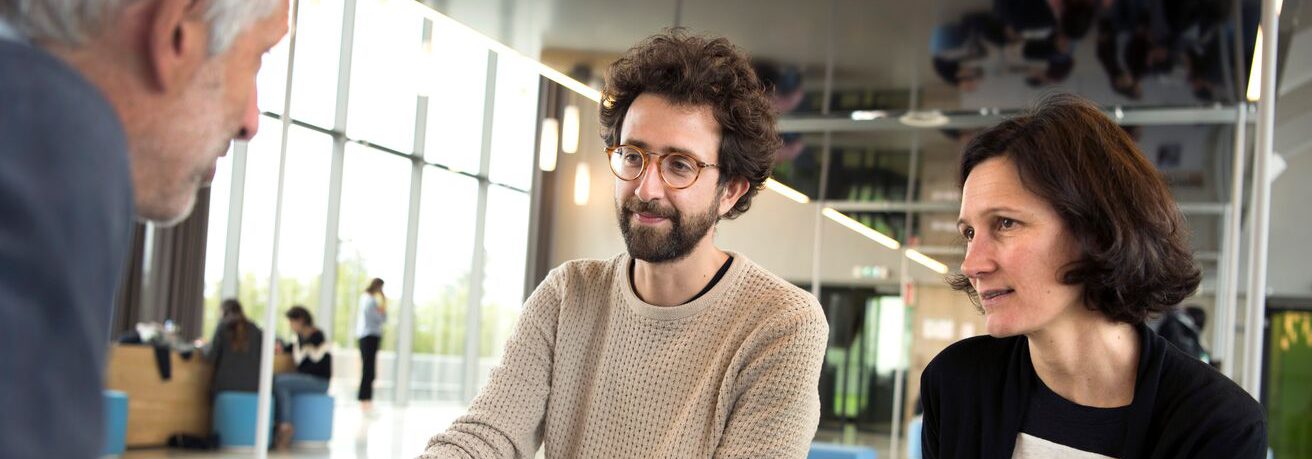
Contemplative Pedagogy
This introductory course in contemplative pedagogy allows (senior) teachers to design powerful and transformative learning environments by introducing slow-paced, introspective, and intersubjective learning activities into university teaching. During the three consecutive sessions, the participants will (1) learn through theory, (2) experience first-hand, and (3) apply the design principles of contemplative pedagogy to their teaching. The course is hands-on and tailored and allows every participant to work on their own teaching material.
Highlights
- Enrich your teaching with powerful methods
- Learn pedagogical tools for deep reflection
- Experience first-hand contemplative learning exercise(s)
- Learn tools to work with students’ attention and wandering minds
- Design introspective and meaningful in-class activities
- Deepen your embodied presence as a teacher
- Cultivate compassionate classrooms
- Practice transformative teaching
Good to know
| Target audience | (Senior) teachers, who oversee designing learning activities. In the case of strong motivation, junior teachers are also welcome. | |
| Language | English | |
| Trainer | Dr. L. (Lela) Mosemghvdlishvili (PPLE, FdR) | |
| Participants | Between 6 (minimum) and 15 (maximum) participants, with a maximum of 2 participants from other higher education institutions (for a fee, see Registration) | |
| Dates |
|
Contemplative pedagogy is a novel approach that brings into education theory 40 years of evidence from the neurophenomenology of mind with the wisdom from contemplative traditions. It integrates from the wisdom traditions concrete methodologies to train mental faculties for deep experiential learning. Namely, it introduces an understanding of how students’ (and teachers’) mental state(s), attention, and presence influence, hinder, or support learning.
A contemplative way of learning complements rational-logical and sensory modes of learning. Students experience contemplative exercises as personally meaningful, enriching, and empowering. By giving more significance to learners’ inner worlds (embodied experience of learning material and classroom environment), students are genuinely put at the center of the learning process. Such an approach allows teachers to recover authentic presence in the classroom, leading to a more fulfilled experience in the teaching profession.
Contemplative practices contain mind-training and embodied exercises designed to shift the habitual ways of thinking and reacting, and cultivate a better capacity for concentration, deepened awareness, and insight. In this course, teachers will be exposed to practices that:
- allow training of students’ attention,
- increase students’ awareness of their habitual ways of being and reacting,
- cultivate a greater capacity to be mindful in the class
- nurture relational qualities such as empathy and compassion in the class
- transform competitive class dynamic into a community of learners
- allow students to find meaning in the learning material by connecting with their embodied first-person experience
- reduce students’ self-centeredness and cultivate deepened self-awareness.
Registration
The course is funded from central funds. Signing up is not non-committal, we will count on your participation.
- Registration buttons for employees with an @UvA.nl email address:
- For AUC, ACTA or FdG (AMC) employees: send an email with your name, faculty and date for which you want to register to tlc-centraal@uva.nl
External participants pay a fee of €850,50 and can register by sending an email to tlc-centraal@uva.nl
After registering, you will receive an automated invitation for your Outlook calendar. If there are multiple dates, you’ll get a separate invitation for each (please don’t forget to accept). If the location is not yet known at that time, an update will follow later.
A proof of participation is available upon request. Please send an email to tlc-centraal@uva.nl after the course.
About the trainer - Lela Mosemghvdlishvili
Dr. L. (Lela) Mosemghvdlishvili has fifteen years of experience in teaching and mentoring undergraduate students. Currently, they combine research into contemplative pedagogy as Education Research Fellow at the University of Amsterdam with course design and academic skills coordination at the interdisciplinary honors program PPLE. Alongside academic work, Lela is a student of wisdom traditions and regularly spends time in silent retreats for introspection and practice.






